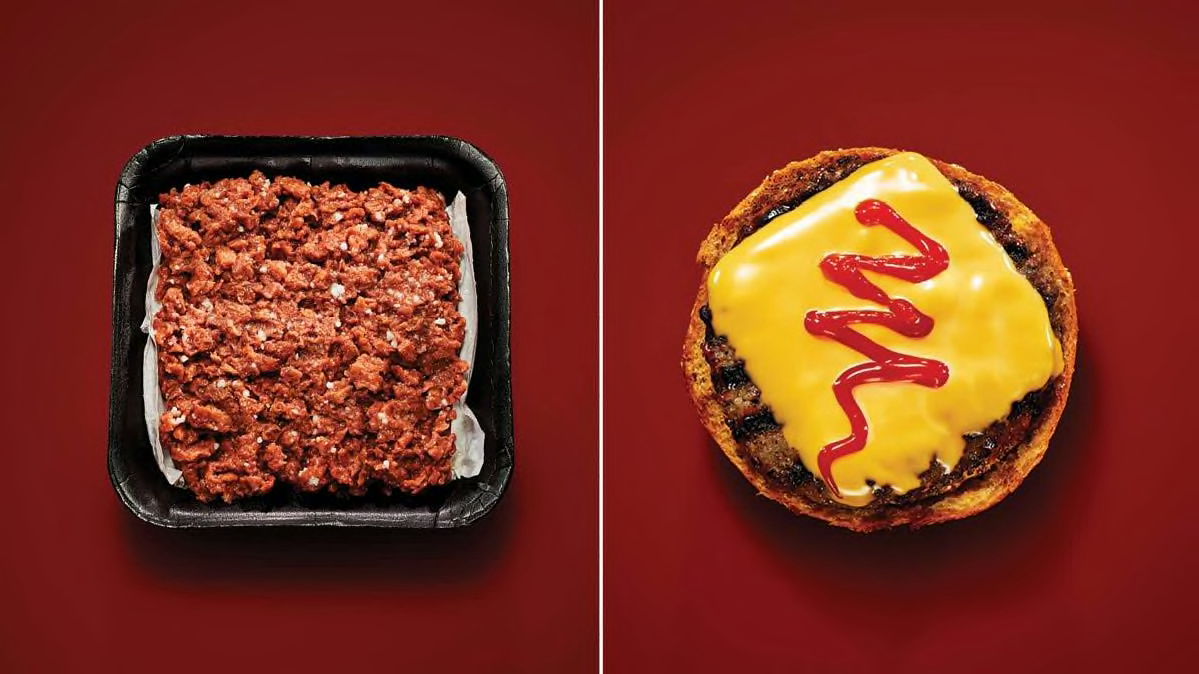The GLP does a lot of yeoman's work in combating the "Frankenfoods" perception of GMOs — work with which I agree.
It's even been honest enough, within this issue, to admit in the past that "Frankenfoods" blather was NOT the only reason so-called "Golden Rice" hadn't been commercially planted in Southeast Asia. (The big reason, which it noted, was GR yields were less than traditional conventional yields. Of course, an actual university noted that first, so the GLP couldn't totally dodge it. Making people healthy with Vitamin A while making them unhealthy with less food doesn't really work.)
But, it's not perfect.
That said, a recent issue was really a slip.
About two months ago, Consumer Reports wrote about plant-based burgers in general, including Impossible Foods' Impossible Burger, complete with its "fake blood" made from nodules on the roots of soybeans. CR said the FDA had never tested that. Impossible's PR claimed not true, to which CR replied that Impossible had tested it themselves, and submitted that to the FDA, which is a different critter entirely.
That's why it's disappointing that, AFTER CR issued that response to Impossible, the GLP called it out, including repeating all of Impossible's talking points. (I Tweeted the links to GLP before starting this blog post; in what's typical low signal-to-noise ratio on Twitter, and somewhat on social media in general, crickets.)
The FDA may have approved soy heme, but not because it did any original testing.
Should this be a matter of concern? Possibly, per that original CR piece.
Oh, if you'll read that, you'll note that ALL fake meat burgers are higher in sodium than beef, and have as much saturated fat.
Coconut oil, used as the fat base for all the fake burgers, isn't yet the palm oil grown as a plantation monocrop. But, who's to say it won't turn into that?
Update, Sept. 18, 2023 with sidebar: Veggie cheese is moderately lower on saturated fat than the real deal, but is higher sodium and is also basically just as processed. See here.
And, per getting downvoted on Reddit, it sounds like a lot of vegetarians don't like to hear this! And, I think I know why. Many people don't eat vegetarian, or vegan, for ethical reasons. Rather, it's another dietary magic bullet idea, in all likelihood. Seriously, the amount of sodium and saturated fats in this Double Quarter Pounder Veggie McCheese, along with the relative lack of fiber? Not healthy. Certainly not compared to what I posted over there that I was eating for lunch: A "base" of white/brown rice plus cracked wheat, lentils and split peas, with broccoli, chopped spinach and turnip greens, then za'atar plus extra Italian herb blend, sumac berries, fig-balsamic vinegar glaze diluted to a sauce, and some diced grapes.
In addition, there's too much protein in that photo, and yes, too much protein can be a problem. But, protein continues to be viewed as a "superfood," wrongly. In fact, too much protein can exacerbate kidney problems. (Maybe this, along with sweet tea, adds to the South's problem there.) It can also cause cancer.
Also, per CR's story, we don't know what the energy input costs are. (Ditto on lab meat, which is probably further away from the market than its defenders claim.)
The simpler answer is eating less meat. And, in working to make vegetables less expensive in the produce section if possible. Eating less meat by eating fewer veggie burgers and breaking that mindset. (I'm not perfect on this, I'll admit. I've probably trimmed my overall meat consumption by 10 percent in the last decade, and ditto on red meat. Not huge. But, considering I already ate below the US average a decade ago, not bad.)
Not eating techno-meat.
GLP?
I nailed it.
Scientism, or salvific technologism, is behind its mindset.
This piece, that claims that twin studies can tell us a lot about addiction, was the "trigger" for the lightbulb.
Nooo .... identical twins can still have somewhat different womb environments depending on exact time of split of the original embryo, first.
Second, this:
“Twin studies indicate that genes influence each stage from initiation to addiction, although the genetic determinants may differ,” stated Francesca Ducci and David Goldman in a review of twin studies published in Psychiatric Clinics of North America. Ducci and Goldman added that addictions “are in part volitional, in part inborn, and in part determined by environmental experience.”


No comments:
Post a Comment
Your comments are appreciated, as is at least a modicum of politeness.
Comments are moderated, so yours may not appear immediately.
Due to various forms of spamming, comments with professional websites, not your personal website or blog, may be rejected.